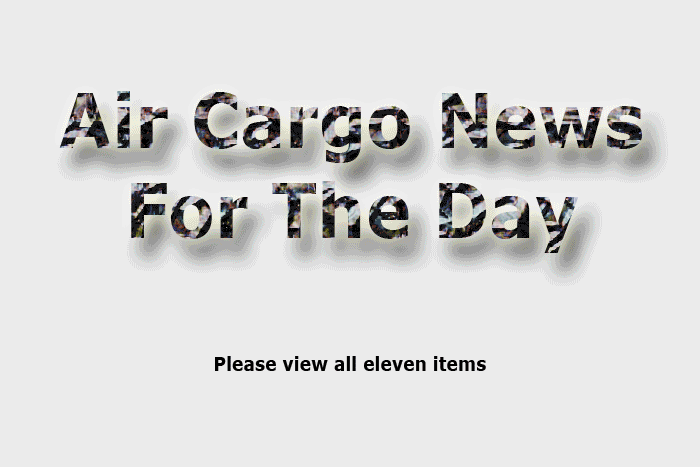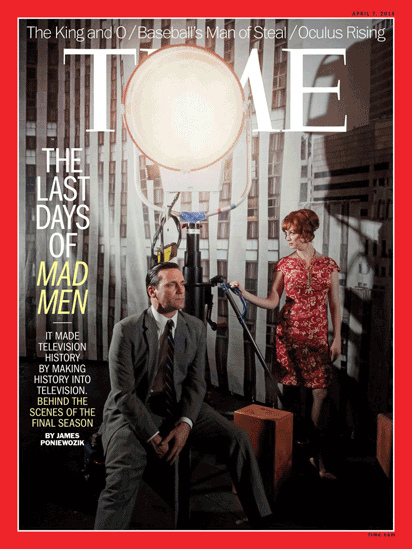
Bill Boesch, who served
as top management at American Airlines Cargo from 1988-1998 and during
an amazing four decade-plus career on the front lines of air cargo went
on to build logistics services and save troops’ lives in Iraq and
Afghanistan, stepped center-stage with a view of our industry and some
forward thinking, as keynote speaker at the AirCargo 2014 held this week
in Orlando, Florida.
Looking at yesterday, today, and tomorrow, including
a five year stint in the Iraq and Afghanistan war zone where Boesch used
his logistics training to move goods and save lives, ACA delegates heard
some good old-fashioned, off-the-shoulder, straight-from-the-heart speechifying,
and most in the packed house (including yours truly), loved every minute
of it.
Where Will
The Growth Be?
Pulling no punches, Bill took on the top
question in transportation today:
‘Where Will The Growth Be?’
he asked AFA conferees:
“For an industry or company to grow
profitable, it must continually develop new products and services; without
change the results will be slower growth, poor ROI, and, finally, major
bankruptcy or consolidation.
“Just this month FedEx chairman and
CEO Fred Smith and IATA chief economist Brian Pearce said the recession
of 2007 to 2009 ended air cargo’s growth due to increased trade
protectionism; miniaturization of electronics; low interest rates leading
to lower inventory ‘carrying costs’ that reduce the need for
speed in the transport of goods; high fuel costs; and more reliable ocean
freight services,” said Bill Boesch.
“Pearce also warned that air cargo
yields might continue to decline because of overall belly hold capacity
provided by wide body passenger.
“Pearce said: ‘The trend has
led to the parking of many freighter aircraft.’
“My response to those comments is
that for certain right now in 2014, air cargo’s major growth has
plateaued, and rates might continue to fall as more passenger belly capacity
enters the market,” Bill Boesch told AFA conferees.
“But we can stop this slide by carefully
developing new products and markets and using future developments in technology
to lower costs and grow profits in a highly competitive future marketplace.
“If applied, this activity could bring
upon a new age for air cargo and one of the most significant paradigm
shifts our industry has ever seen.”
Tips Hat
To Forwarders
Mr. Boesch saluted the freight forwarders
activity yesterday and today, calling out some outstanding individuals:
“In USA forwarders, the marketing
element of the air cargo business has demanded higher-quality service
from the air cargo carriers, as well as improved and faster information,
and unfortunately,” Bill smiled, “lower prices!”
“We must recall and salute pioneers
like Peter George at Emery, Larry Rodberg at Burlington and AEI, Joe Frigger
at EMO Trans USA and others who realized that cooperation must be advanced;
they were among the voices leading change, an activity I might point out
continues, led by many of you present here in the audience today.”
Government
Business Dips In 2015
“Something I have also been involved
with personally is activity of the US Civil Reserve Air Fleet or CRAF.
“In the past up until now some well
known U.S. flag carriers, and cargo airlines in particular, have been
somewhat insulated from the negative effects in the world market because
of the need for wartime lift by the U.S. military.
“In 2015, this business, which has
represented billions of dollars per year to the U.S. commercial carriers,
will be significantly reduced.
“For those of you who do not know
what the Civil Reserve Air Fleet, or CRAF, is let me offer you a quick
overview.
“CRAF was formed in the 50s to give
the U.S. military access to the U.S. commercial airlines’ fleets
in times of national need.
“In return for pledging aircraft to
the CRAF program, the airlines gain access to the U.S. government’s
business.”
Looking Ahead
“Looking at the present and the future,
my view is that there will be plenty of demand ahead, but we have a lot
of work to do if we as an industry are going to get our fair share.
“In addition to driving new markets,
there are reportedly more than a billion people in China and India and
elsewhere around the planet emerging into a new middle class during the
next decade.
“As Joe Czyzyk, CEO of Mercury Air
Cargo said recently:
“‘A billion people in the expanding
global middle class during the next decade will not only subsist, but
also will want stuff such as electronics, pharama and other commodities
natural to air cargo.’
“But none of us,” Mr. Boesch
pointed out, “can be successful in that or any future, unless we
recognize our customers’ needs while preparing for the future.
“Companies that invest wisely, based
on what they believe will happen in the future, will not only survive
but prosper as we move deeper into the 21st century.”
Moving From
Here To There
“I think we will see serious advancements
in low-cost alternatives to the present jet freighters in the next decade.
“Ask yourself how much cargo really
needs jet speed or does most of it just need to move twice as fast as
ocean transportation?
“Will that be based on technology
advances, the new product of the 2020 decade?
“Fusion as an energy source will happen
within the next decade.
“Undoubtedly we will see unmanned
cargo aircraft in operation as right now the FAA is considering approval
criteria that could reach finalization by 2017.
“The impact of this new transportation
technology will lower the cost of air cargo tremendously and create a
market worldwide beyond imagination by many today.
“In fact, some package delivery companies
are seriously considering the first phase of unmanned delivery.
“There is one company operating today,
Aeroscraft, that is making major investments in new technologies and has
serious government interest and private investment.
“But we must speed up the processes
on the ground through technology in security and reduce lengthy clearance
times.”
Advancements
& Open Skies
“I believe open skies and globalization
will gain momentum and as a result we will see cross investment in national
carriers and the present alliances turning into joint ownership.
“There will continue to be development
in computers, mechanization, and robotics within the next decade that
will greatly affect the air cargo industry and lower costs while improving
reliability.
“But Cyber security, one of the leading
world concerns, must be solved.
“We will need to address in exact
detail drivers that affect our industry and the aircraft we fly.
“Open trade is a subject governments
must come to grips with once and for all.
“World markets must open their borders
and promote global trade.
“The benefit of expanding global manufacturing
can only accelerate the need for air cargo,” Bill Boesch said.
Some Final
Thoughts
Unlike some of the talks at the IATA Symposium
earlier this month, Bill gave suggestions on how to reverse the negative
slide and insure that air cargo will even have a bright future in the
years ahead.
As Bill imagined, air cargo might turn into
“Air and Space Air” and the industry could go “where
no man has ever gone to before.”
We took Bill aside and asked him if he had
any further thoughts; of course, he did.
“You know that I have been arguing
with Fred Smith forever that air cargo will be dominated by the belly
carriers who can fly freight at a low cost incrementally.
“At the IATA meeting earlier this
month Fred came close to admitting that.
“I see express carried on jet freighters,
and air cargo carried in the ever expanding bellies of passenger flights.
“Oversize special-needs cargo will
continue to be moved aboard charter carriers.
But sooner than many think a new cargo lifter
will come onto the scene. Twice as fast as ocean shipping (no need to
fly at 600mph versus 30mph on the water to compete and win), it will be
able to lift enormous payloads—new, low-cost, high technology airships
will change air cargo forever.
"There are two versions planned: the
ML 866, traveling at 100 knots/115 mph, with the ability to carry 66 tons
up to 3,000 miles and the ML 868, traveling at 100 knots/115 mph, with
the ability to carry/weighing 250 tons up to 6,000 miles.
"This is between 30 to 40 hours JFK/LHR,
depending on the winds, so at most 2 days between New York and London.
“Time will tell if I am right, but
it surely looks that way from where I sit,” Bill Boesch said.
Geoffrey
|









